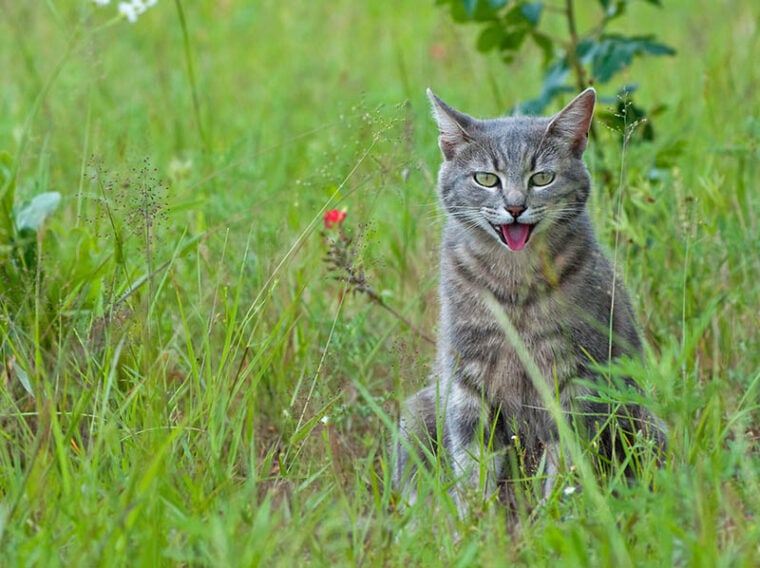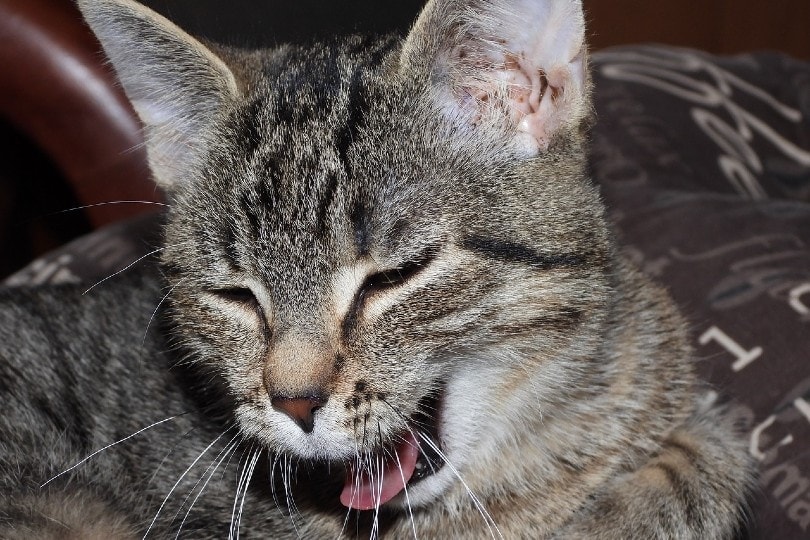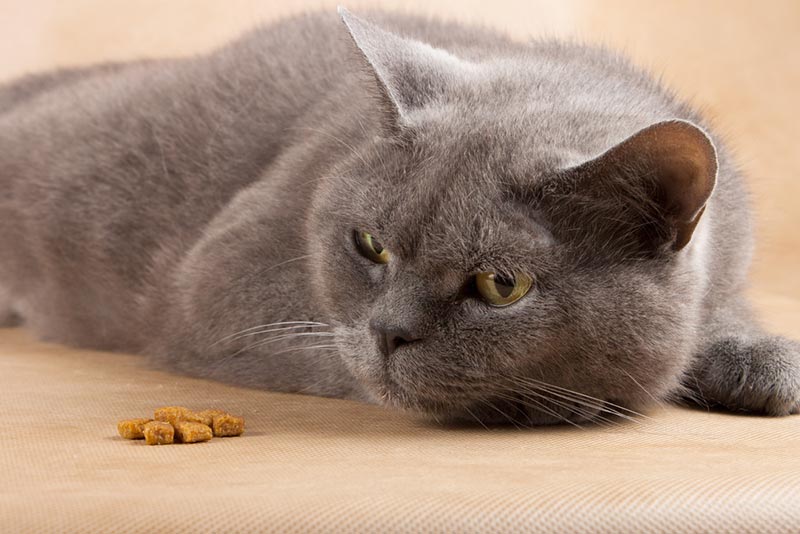
While we associate dogs with panting, cats can pant from time to time too. With dogs, panting is a normal part of life, but in cats, this behavior is unusual1. Cats don’t normally pant so it’s hard to imagine that they would start without reason. Nevertheless, here are some reasons your cat might be panting.
NOTE: If you suspect your cat is ill, contact your veterinarian immediately. Your veterinarian will be able to determine whether your cat needs to be seen based on your observations of their behavior. Labored breathing in cats is a relatively severe issue that needs to be treated swiftly to ensure good health outcomes for your cat.
Normal Panting in Cats
Figuring out your cat’s panting starts with analyzing the details of its behavior. Cats may pant if they’re anxious, stressed, or overheated, just like dogs. Vigorous exercise can cause panting. So, if it only happens after your cat has exercised or encountered the dreaded vacuum, you can rest easy.
Still, this kind of panting is relatively rare in cats. So, if you’re not 100% sure why your cat is panting, contact your veterinarian to see if there’s anything you missed. Be sure to include all the information about what they were doing and any other unusual behaviors you’ve noticed recently.
Abnormal Panting in Cats
Abnormal panting is rarely a solo-flying symptom. You can usually find some other notable irregularities with your cat’s behavior by the time they start panting to where you’ve noticed it. If you haven’t seen your cat acting strangely or aren’t sure if they’re panting, look for the following symptoms:
If your cat has any of these symptoms, it could indicate that your cat is having trouble breathing. If any of these symptoms are present, take your cat to a veterinarian immediately to ensure that there are no underlying severe illnesses you haven’t picked up on yet.

The 4 Reasons of Abnormal Heavy Breathing in Cats
Many conditions can cause a cat to begin breathing heavily. Some are chronic, while others are acute and can be cured. The most common causes of labored breathing in cats are respiratory infection, asthma, heartworm, and congestive heart failure. Here’s what you need to know about these disorders:
1. Respiratory Infection
Respiratory infections1 are one of the leading causes of labored breathing in cats. There are several different types of respiratory infections your cat might develop, but here are the most common symptoms associated with many feline respiratory infections:

2. Asthma
Asthma may not seem like an ordinary cat ailment, but veterinarians estimate that the disease afflicts at least 5% of cats worldwide. Unfortunately, cats’ asthma symptoms aren’t well-studied, but most veterinarians think allergies cause the signs. When allergens get into a cat’s body who’s allergic, they cough, and their airways tighten from inflammation, causing labored breathing.
3. Heartworm
Heartworm in cats is similar to heartworm in dogs. It’s caused by a parasite known as Dirofilaria immitis, spread by mosquitoes. While cats can get infected with heartworm, they’re generally resistant to it as they don’t make good hosts for heartworms.

4. Hypertrophic Cardiomyopathy
Hypertrophic cardiomyopathy occurs when the muscles surrounding a cat’s left ventricle become enlarged or thickened, causing congestion in the heart and stunting its ability to pump blood out into the body. Hypertrophic cardiomyopathy can easily be deadly. So, get your cat to the vet right away if you suspect they’ve got something wrong with their heart.
Final Thoughts
It can be scary to think about our cats catching something terrible, and you’re not alone if you feel on edge and hyper-aware of minor changes in your cat’s behavior. But, on the other hand, panting can signify something severe, so it’s good to be aware of it.
As always, if you think your pet is sick, contact your veterinarian immediately. They have access to your cat’s records and information and can make a better judgment call about whether your cat needs to be seen.
Featured Image Credit: Sari ONeal, Shutterstock







